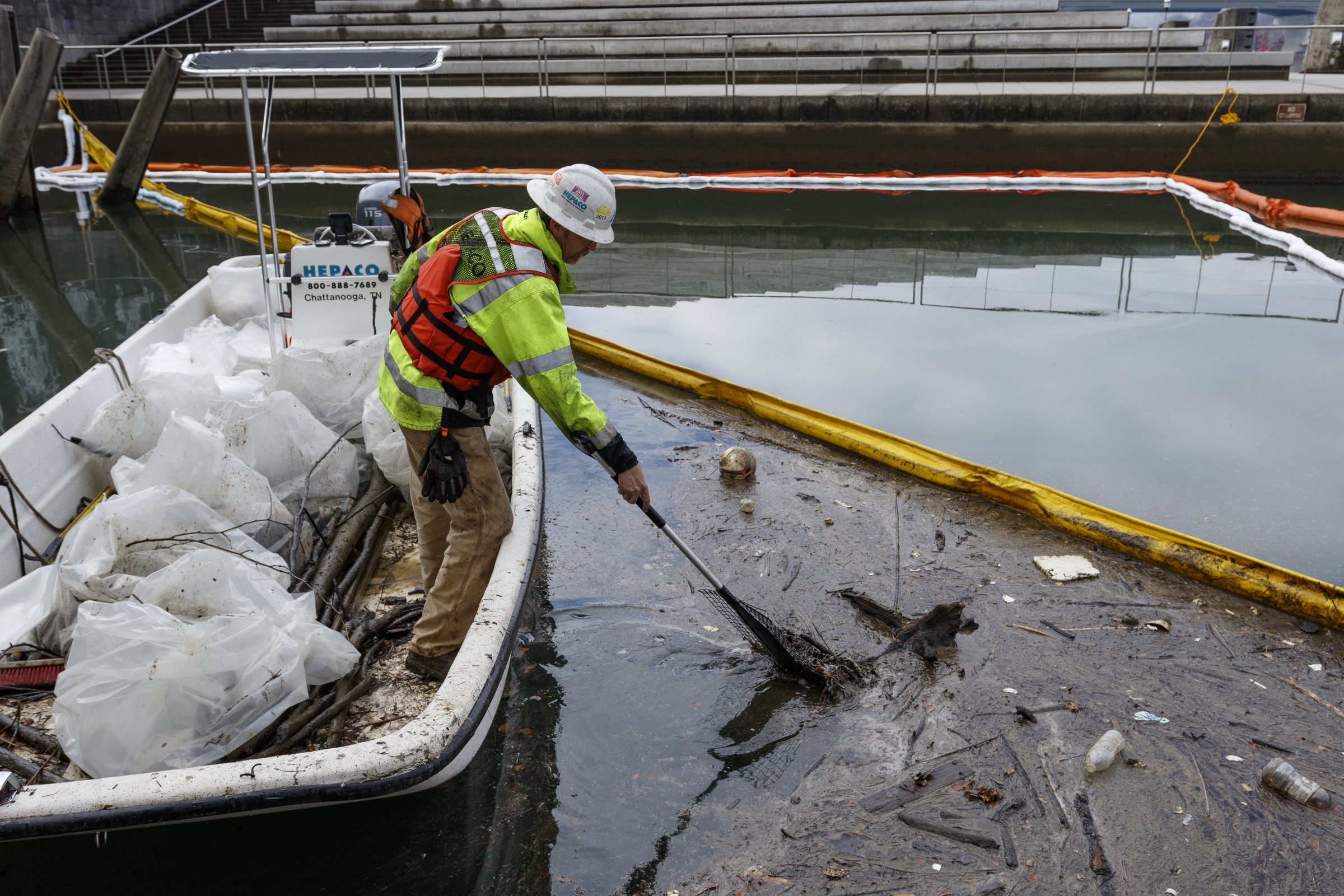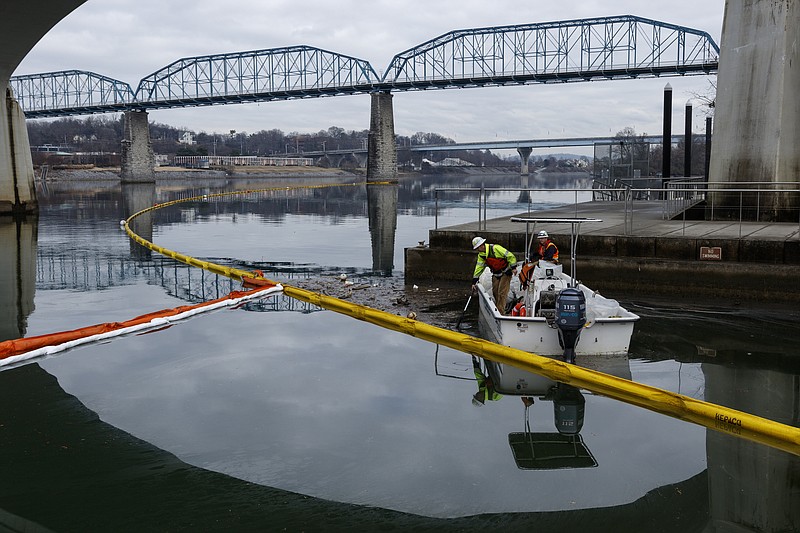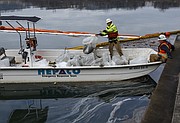Photo Gallery
Oil spill from deButts Yard retention pond could have significant impact on ecosystem, Tennessee Aquarium biologist says
An oil spill that dumped more than 1,000 gallons of fuel into Citico Creek, much of which flowed into the Tennessee River, came from a retention pond at Norfolk Southern Railway's deButts Yard, according to Tennessee Department of Environment and Conservation spokeswoman Kim Schofinski.
The cause of the spill is ongoing, but it could have a significant effect on the local freshwater ecosystem, a biologist said.
"Some of the species utilize the surface of the water a lot and could come into direct contact with the oil spill," Tennessee Aquarium aquatic conservation biologist Bernie Kuhajda said. "... It is a significant toxic event to the aquatic environment, both in the short term and the long term."
The fuel spilled Monday evening into Citico Creek, which feeds into the Tennessee River. The leak is no longer active, according to emergency responders and state and federal agencies.
It is not the first spill by Norfolk Southern. The company has reported four other spills to TDEC since 2013, ranging from 10 to 6,000 gallons, according to Schofinski. The oil floats and will remain mostly toward the surface of the river, and animal species that use the surface of the water will be directly impacted. Gar and paddlefish in particular are examples of bigger fish that likely will be affected. Birds, turtles and other animals also use the water's surface. But not all of it just sits on top of the water, Kuhajda said. Boats passing by will cause some of the oil to sink.
On Wednesday, oil and debris were held in place in the Tennessee River by a containment boom in the shadow of the Tennessee Aquarium. An environmental cleanup group worked in the area to clean the river.
Behind them, two men walked the pier with fishing poles in hand. They baited their fishing lines, casting them into the river through a layer of oil.
"Nope, we're not worried one bit," Artis Phelps said.
Phelps and his fishing buddy, who declined to give his full name, were out to relax and have a good time.
They caught three fish in a matter of minutes, explaining the fish were staying below the layer of oil. Besides, they weren't planning on eating them, they said.
Phelps saw the report on the evening news but didn't realize it was in the area he was planning to fish. By the time the men got to the pier, much of the oil had been removed. However, oil could clearly be seen floating in the river.
The entire cleanup will take days.
Norfolk Southern hired several environmental remediation companies to do the cleanup work, according to Chattanooga Fire Department public information director Bruce Garner. Company spokeswoman Susan Terpay told the Times Free Press it is still investigating the source and cause of the release.
"We have deployed significant resources to conduct cleanup efforts and are assisting and fully cooperating with the U.S. EPA, TDEC, and the city in this work," she said.
The oil spill highlights a much bigger problem, Kuhajda said.
"A one-time event like what just happened is not good, but the pollution that goes on just continuously is really having the larger overall negative effect on our aquatic ecosystem," he said.
The Tennessee River is infused with petroleum and other harmful chemicals on a regular basis, and it's the biggest threat to the area's aquatic ecosystem, Kuhajda said. Oil from leaky cars eventually finds its way into the river once it rains. Other products such as those used for lawn care treatment do the same and pose a major threat to species in the water, he said.
Kuhajda and Tennessee Aquarium spokesman Thom Benson aren't suggesting people stop driving or treating their lawns, but they do believe there are easy steps to keep these products from regularly entering the river. They suggest residents follow instructions for all lawn care products. Oftentimes, people use more than the recommended amount of lawn care products, they said, or they treat their yards right before it's expected to rain.
Contact staff writer Mark Pace at mpace@timesfreepress.com or 423-757-6361. Follow him on Twitter @themarkpace and on Facebook @ChattanoogaOutdoors.
 A worker with the HEPACO emergency response company removes debris from an oil containment boom at Ross's Landing on Wednesday, Jan. 10, 2018, in Chattanooga, Tenn. TDEC continues to investigate a fuel spill of more than 1,000 gallons from Norfolk Southern Railway's deButts Yard into Citico Creek, which feeds into the Tennessee River.
A worker with the HEPACO emergency response company removes debris from an oil containment boom at Ross's Landing on Wednesday, Jan. 10, 2018, in Chattanooga, Tenn. TDEC continues to investigate a fuel spill of more than 1,000 gallons from Norfolk Southern Railway's deButts Yard into Citico Creek, which feeds into the Tennessee River.
